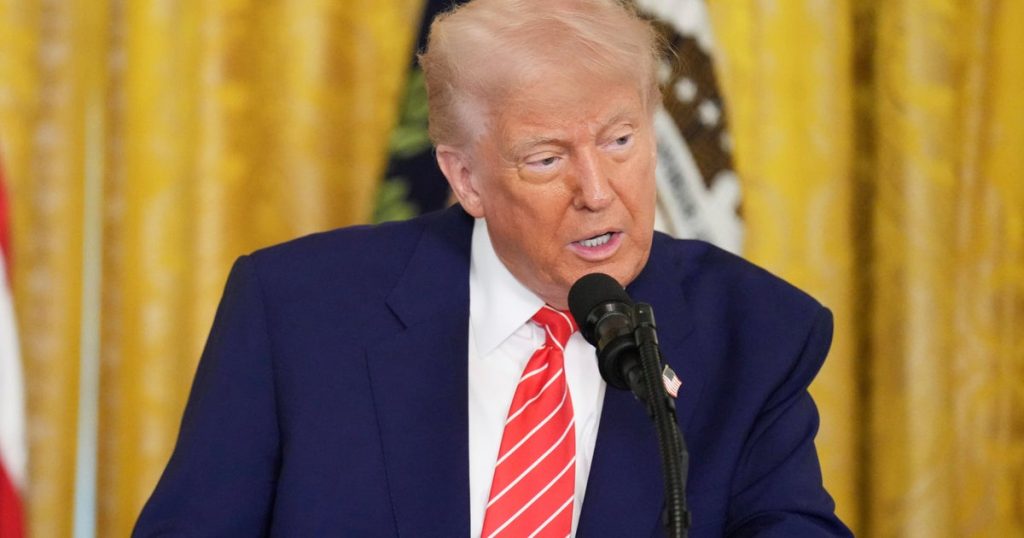A significant development is on the horizon as former President Donald Trump prepares to unveil a “most favored nation” plan aimed at slashing Medicare drug prices. This announcement comes after previous attempts to implement the plan during his first term, which faced numerous legal obstacles. Trump has teased grand revelations about this initiative that may fundamentally impact drug pricing for Medicare beneficiaries, drawing attention to the administration’s ongoing efforts to negotiate affordable prices in the healthcare sector.
| Article Subheadings |
|---|
| 1) Background on the “Most Favored Nation” Plan |
| 2) Legal Challenges and Administrative Responses |
| 3) Implications for Medicare Beneficiaries |
| 4) Statements from Key Officials |
| 5) Future of Drug Pricing Negotiations |
Background on the “Most Favored Nation” Plan
The “most favored nation” plan is designed to link certain high-cost Medicare drug prices to the lowest prices that drug manufacturers receive in other countries. Proposed during Trump’s first term, this concept aims to reduce out-of-pocket expenses for beneficiaries by ensuring that they do not pay more for medications than citizens in other developed nations. This approach is rooted in the belief that American patients should enjoy similar pricing structures as their counterparts abroad. The unveiling of this plan was initially marked by anticipation, with officials hinting at a groundbreaking announcement that could shake up the healthcare market.
Legal Challenges and Administrative Responses
Despite the intention behind the “most favored nation” policy, it has faced substantial legal hurdles. During Trump’s presidency, a federal judge in California highlighted concerns regarding the implementation of this plan, citing that the government did not adhere to proper rulemaking procedures required for such policy shifts. The judge pointed out that while it is not uncommon for administrations to push through significant changes in a limited timeframe, doing so must comply with established legal frameworks. The Biden administration subsequently chose to abandon the plan in 2022, citing ongoing court ordeals and stakeholder apprehensions regarding its potential impact on drug availability for Medicare recipients.
Implications for Medicare Beneficiaries
The implications of the “most favored nation” plan for Medicare recipients could be significant. If executed successfully, it may lead to lower prices for essential medications, thereby alleviating financial burdens on elderly patients who often rely on these drugs for managing chronic conditions. However, concerns remain about potential disruptions in the supply of medications, as some stakeholders have raised fears that drug manufacturers might limit availability in response to lower pricing policies. This balancing act between affordability and accessibility continues to be a focal point in discussions surrounding the proposed plan.
Statements from Key Officials
Officials from both the Trump administration and the Department of Health and Human Services (HHS) have shared insights on the unfolding scenario. A spokesperson from HHS indicated that the agency does not provide commentary on ongoing considerations for demonstration projects related to the proposed model, reflecting a cautious approach to the rollout of any new initiatives. Meanwhile, former Health and Human Services Secretary Robert F. Kennedy Jr. emphasized the urgent need to negotiate drug prices that align with global standards, suggesting that significant price disparities currently exist, particularly for popular medications like the diabetes drug Ozempic.
Future of Drug Pricing Negotiations
Lawmakers and healthcare officials are gearing up for negotiations that aim to put the focus firmly back on drug pricing strategies in the future. As discussions continue about the implications of reintroducing the “most favored nation” plan, stakeholders will be closely monitoring the outcomes of these talks. The effectiveness of such a policy hinges on collaborative efforts between government entities and pharmaceutical companies, aiming to secure affordable medications without compromising the sustainability of healthcare provision.
| No. | Key Points |
|---|---|
| 1 | The “most favored nation” plan aims to align U.S. drug prices with those in other countries. |
| 2 | Legal challenges blocked the implementation of the plan during Trump’s administration. |
| 3 | Abandonment of the proposal by the Biden administration cites ongoing legal obstacles and stakeholder fears. |
| 4 | Key officials indicate the need for ongoing negotiations about drug pricing strategies. |
| 5 | Potential impacts on Medicare beneficiaries include lower prices but might risk availability of certain drugs. |
Summary
The forthcoming announcement regarding the “most favored nation” plan has the potential to reshape the landscape of Medicare drug pricing significantly. As discussions unfold about the implementation of this policy, careful attention must be paid to both legal frameworks and the implications for beneficiaries. Stakeholders will continue to weigh the value of affordable medications against the backdrop of supply chain concerns as negotiations progress, signaling a pivotal moment in U.S. healthcare policy.
Frequently Asked Questions
Question: What is the “most favored nation” plan?
The “most favored nation” plan is an initiative aimed at reducing Medicare drug prices by ensuring they align with the lowest prices available in other countries.
Question: What challenges did the plan face during its initial rollout?
The plan encountered legal obstacles that prevented its implementation, including rulings that highlighted the government’s failure to follow proper rulemaking procedures.
Question: How could the plan affect Medicare beneficiaries?
If successful, the plan could lead to lower drug prices for Medicare beneficiaries, though there are concerns about potential limitations on drug availability.


